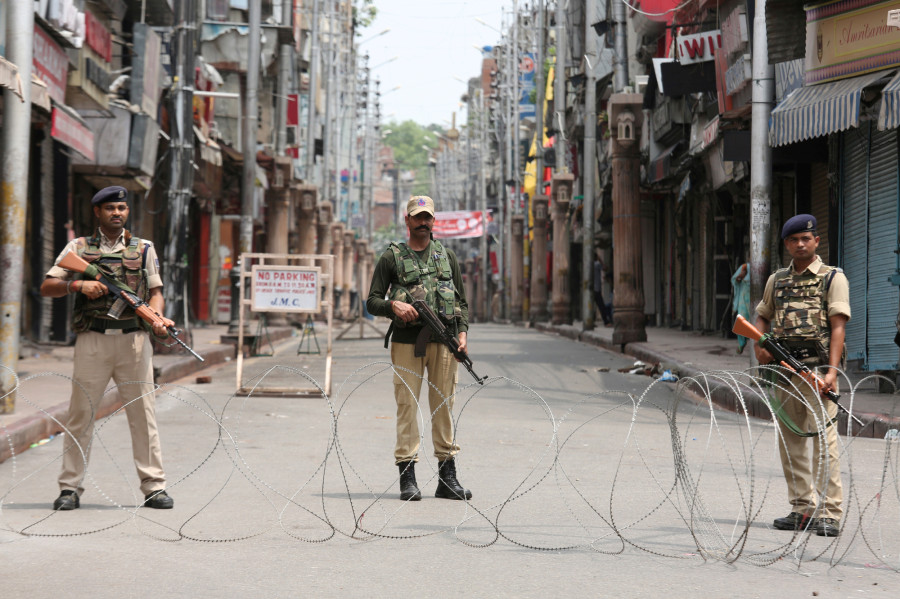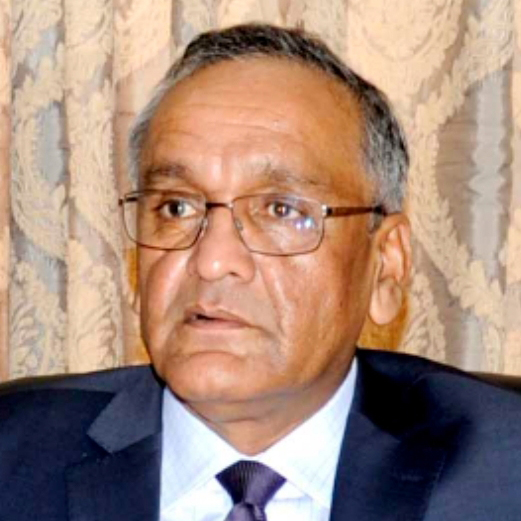Columns
The solution to Jammu and Kashmir dispute is staring at our faces
The problem has not been that of searching for a solution but merely of implementing it.
Mazhar Javed
Now, when everybody is talking about the Jammu and Kashmir dispute with a sense of urgency, it is imperative to dissect its genesis, history, and implications for regional peace.
At the time of Partition in 1947, Jammu and Kashmir was the largest princely state and had an overwhelmingly Muslim majority. According to UN resolutions and public statements by India’s own leadership, the future of Jammu and Kashmir was to be decided according to the wishes of its people, ascertained through a free and fair plebiscite. Since then, the problem has not been that of searching for a solution but merely of implementing it.
On August 16 this year, the UN Security Council discussed Kashmir. After the 90-minutes-long discussion, Russia’s UN deputy ambassador noted that the last time Kashmir was discussed at the Security Council was some half a century ago, in 1971.
While the meeting was held behind closed doors and the discussions were not made public, the very discussion on Kashmir at the Security Council had unambiguous meanings. It was a crystal clear negation of decades of Indian propaganda that Jammu and Kashmir was an integral part of India and that UN resolutions were no more relevant; although no one even vaguely familiar with the UN systems and international affairs ever subscribed to a fraction of this propaganda.
The UN Security Council meeting came about a week after the UN Secretary General’s August 8 statement that the UN position on Jammu and Kashmir ‘is governed by the Charter of the United Nations and applicable Security Council resolutions’. It also called for restraint from ‘taking steps that could affect the status of Jammu and Kashmir’.
These Security Council resolutions require the future of Jammu and Kashmir to be decided according to the wishes and aspirations of its people through a free and fair plebiscite.
That precisely has been the voice of the people of Jammu and Kashmir and has been agreed to by all parties to the dispute and the international community. Those looking for a solution to the Kashmir problem are looking for something that is so obvious, not as of now but for the last 70 years. The problem is only with the implementation of the long-available and agreed-to solution.
In all these seven decades, the non-implementation of the UN resolutions has led to Indo-Pak wars and brought the two countries to the brink of war several other times. Many people call it a nuclear flashpoint. The problem has threatened peace in South Asia ever since the British left the region in 1947. The 70-year history tells us that durable peace and stability in the region would remain elusive without the resolution of this long outstanding dispute. That is important.
Since the freedom struggle gathered new momentum in 1989, the occupation forces have killed well over 100,000 civilians. Thousands of women have been raped and over a thousand youth have been rendered blind only in the last three years. Recent reports by the United Nations High Commissioner for Human Rights have documented the massive atrocities committed by the Indian security forces in recent years. It demands the establishment of a commission of inquiry to hold those responsible for these killings and blindings.
Over 12 million people in this disputed territory have been under curfew for the last two and a half weeks. Cellular lines are down with millions of people totally disconnected, not only from the rest of the world but also from each other. When communication lines are severed, no one knows what is actually happening in this cordoned-off prison.
One trembles at the very thought of seeing the future of the Kashmiri people at the hands of the Indian security forces that have an infamous, documented record of brutalities against the very same people.
On August 3, 91-years-old Kashmiri leader Ali Shah Geelani tweeted his SOS call. His words are, to say the least, alarming for the whole world: ‘Indians are about to launch the biggest genocide in the history of mankind’. Geelani is certainly not alone in his apprehensions. In his phone conversation with Nepal’s Foreign Minister Pradeep Kumar Gyawali on August 22, the Pakistani Foreign Minister highlighted the ‘Genocide Alert’ for Kashmir issued by the Genocide Watch, an international organisation that works towards preventing genocides anywhere in the world.
In all this discussion, what is most obvious is that the problem is not about finding a solution—it is about employing a solution that has been there all along, documented in black and white, staring at our faces, i.e. the implementations of the UN resolutions.
The human rights situation prevailing today in this prison with 12 million innocent people, and the alarm bells of massive bloodshed need to be attended to with the utmost sense of urgency. For durable peace and stability in the region, the dispute must be settled by implementing the UN resolutions. The sooner the better it will be for the people of Kashmir, for regional peace and stability, and for the credibility of our notions of peace, justice and human rights.
***
What do you think?
Dear reader, we’d like to hear from you. We regularly publish letters to the editor on contemporary issues or direct responses to something the Post has recently published. Please send your letters to [email protected] with "Letter to the Editor" in the subject line. Please include your name, location, and a contact address so one of our editors can reach out to you.




 9.83°C Kathmandu
9.83°C Kathmandu















